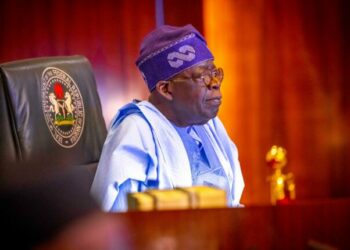Nigeria’s trade policies, shaped by a blend of strategic intent and responsive adaptation, are pivotal in steering the country toward sustainable development and global economic integration. These policies, despite facing challenges, have demonstrated notable merits that underline Nigeria’s potential as a formidable player in the global market.
One of the cornerstone merits of Nigeria’s trade policies is their focus on economic diversification. Historically dependent on oil exports, Nigeria has been vulnerable to global oil price fluctuations. Recognising this, recent trade policies have emphasised diversifying the export base. Initiatives to promote non-oil sectors, such as agriculture, manufacturing, and services, have started to yield positive results. For instance, the government’s support for the agricultural sector through the Anchor Borrowers’ Programme has significantly boosted the production and export of crops like rice and cocoa. This diversification not only enhances economic resilience but also fosters sustainable growth by reducing reliance on a single commodity.
Nigeria’s trade policies have also been instrumental in fostering local production and reducing import dependency. The Central Bank of Nigeria’s (CBN) foreign exchange restriction on certain imported goods has spurred local industries to fill the gap. Policies aimed at import substitution have encouraged the growth of local manufacturing, creating jobs and stimulating economic activities. The “Made in Nigeria” campaign is a testament to the government’s commitment to supporting homegrown industries, thereby bolstering the nation’s self-sufficiency and reducing capital flight.
Nigeria’s active participation in regional trade agreements, particularly within the Economic Community of West African States (ECOWAS), showcases another merit of its trade policies. By championing the African Continental Free Trade Area (AfCFTA), Nigeria has positioned itself at the heart of efforts to create the world’s largest free trade area. This move is expected to boost intra-African trade, enhance economic cooperation, and attract foreign investment. The reduction of trade barriers within Africa aligns with Nigeria’s broader goal of becoming a regional trade hub, thereby leveraging its strategic geographical position and large consumer market.
Trade policies in Nigeria have also focused on creating a conducive environment for investment. By streamlining business regulations and improving the ease of doing business, Nigeria has made significant strides in attracting foreign direct investment (FDI). The government’s efforts to improve infrastructure, including the development of ports and transportation networks, further support trade facilitation. Investments in technology and digital infrastructure are also noteworthy, as they enhance the efficiency of trade processes and open new avenues for e-commerce.
While Nigeria’s trade policies have shown commendable merits, challenges remain. Infrastructure deficits, bureaucratic bottlenecks, and security concerns can impede trade and investment. However, the government’s proactive measures to address these issues, such as the Presidential Enabling Business Environment Council (PEBEC) and significant investments in infrastructure, indicate a strong commitment to overcoming these hurdles.
Nigeria’s trade policies, with their focus on diversification, local production, regional integration, and investment facilitation, have laid a solid foundation for economic growth and stability. By continuing to refine these policies and addressing existing challenges, Nigeria is well on its way to realizing its full economic potential. The merits of these policies not only reinforce Nigeria’s role in the global economy but also ensure that the benefits of trade are broadly shared among its populace, fostering an inclusive and prosperous future.















